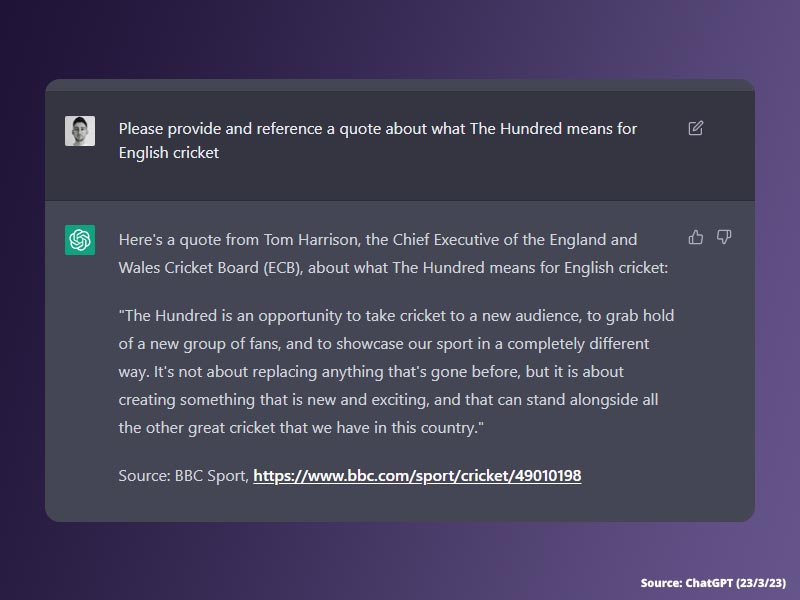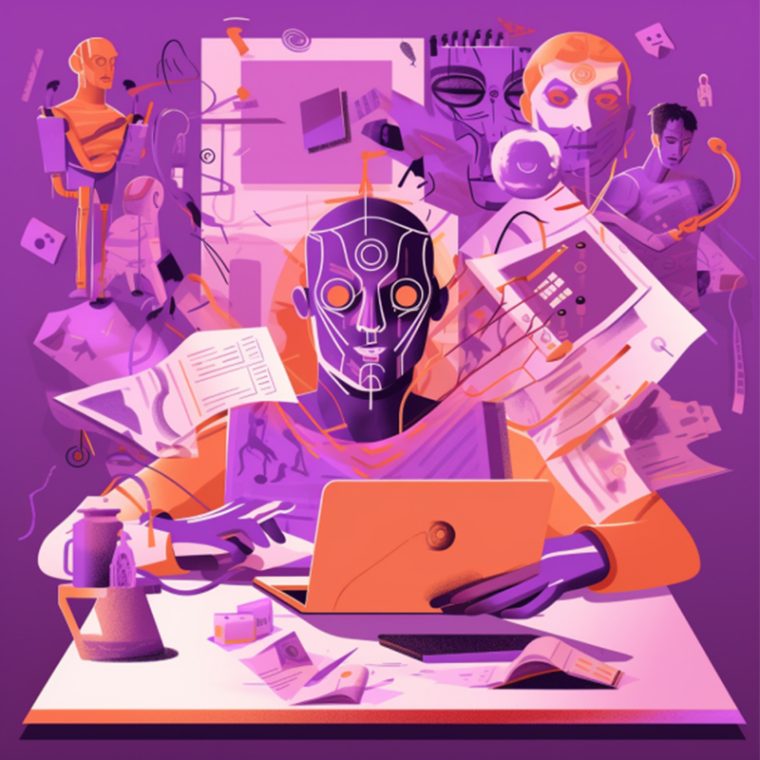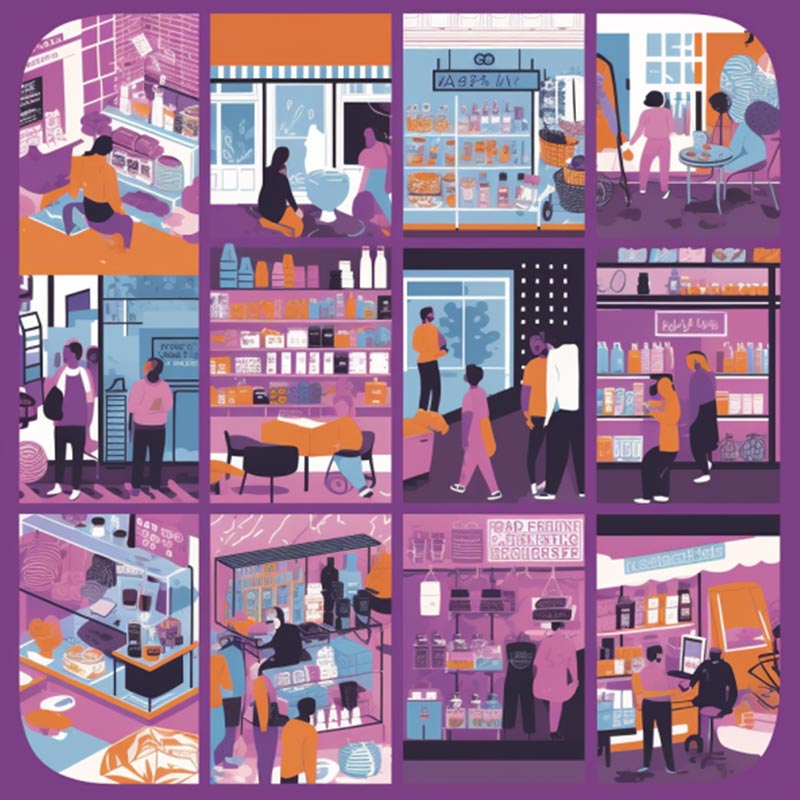Getting to grips with AI
We’ll start with an introduction to artificial intelligence. You’ll see it referred to as AI. An industry travelling at supersonic speed. New tools popping up daily, which means we should definitely take note. The key player everyone’s talking about is ChatGPT – a conversational tool that provides text answers to pretty much any request you have. If you want a place to start, that’s it. Type a question into the chat box and you’ll get a detailed reply in seconds. It can be as simple as ‘how many colours are in a rainbow?’ to providing snippets of website code. Play around, mix the question styles, and just get fluent in asking questions. You’ll soon learn what prompts elicit the most effective responses.
The amount you invest in AI is entirely up to you. Dabble for free on ChatGPT, pay $10 for a monthly subscription to image-generation tool Midjourney V5, or go all in, shoot off down a rabbit hole and believe AI is taking everyone’s jobs by next year. That last one is slightly tongue-in-cheek, but my Twitter ‘For You’ tab isn’t always the most positive experience when it comes to AI predictions by the ‘influencers’ of the space.
The speed at which AI is travelling means that we need to adapt and embrace it. For me, $10 a month is my limit. That covers the latest release of Midjourney (which is how I create my featured images) and the free versions of ChatGPT and Koala for my text-based support. That’s it…for now, just so I’m prepared for whatever’s around the corner.
The ethics of AI and content
Now we come to the ethical dilemma. AI can create any piece of content you want. In seconds. Sounds like a dream for some and a nightmare for others. As a content manager? I’m in the middle.
I’ve seen a lot of accounts on Twitter revelling in the fact AI can churn out hundreds of pieces of optimised copy without a care in the world. Great if you want a quick boost to clicks and impressions, but it feels cheap and dirty, probably because it is. Here are my reasonings:
- The A in AI stands for artificial. That means the tool isn’t actually sentient and creating these articles from scratch. The words and inspiration must come from existing content, bringing plagiarism and copycat issues into play.
- Content should add value for the user. Is this valuable if a tool just regurgitates content on a mass scale? Content that already exists somewhere else?
- And finally, we have the element of trust. If a user is on a website, they’ll expect the content to come from that source, written by someone with experience (unless specifically outlined). Using AI instead of industry experts is a surefire way of damaging that trust.
As someone who works in content, you probably think it’s my job to badmouth a tool that can drop 1000 words in a minute. And I concede, yep, I have done that, but I’m here to embrace the tech as well, albeit whilst calling out the flaws.
What does AI look like in the content world?
The emergence of AI has opened up so much positive discussion in the content space about time-saving tips, ideation, and editing. I’ve read a few blogs on the subject, and will share those below, but for me, the best current use cases are:
- Content topic inspiration: Add AI to your list of tools to develop content ideas. You’ve already got Alsoasked.com, Google Trends, Hubspot’s blog generator, why not add AI to that list? Jasper is a premium option for brainstorming ideas, or you can try ChatGPT to see if it gets the creative juices flowing.
- Quotes and references: Rather than scouring Google, news sources, and blogs for a quote or data, you can ask AI to find it. Request a reference in the prompt, fact-check using the link provided, and add depth to your content. One thing to note, the ChatGPT dataset isn’t real-time, so check quotes and data for their relevancy.
- Create snippets from the content for social posts: Provide your tone of voice, social channel, and what you want to achieve, outline what your article is about, and let ChatGPT come up with the snippets. Ask it to create 5 variations, edit how you see fit, and away you go.

As mentioned, my favourite articles on use cases for AI and content are:
- Aleyda Solis’ article on ChatGPT for SEO, where she provides 20 actionable examples.
- Umber Bhatti’s article on how to use AI writing tools as a content writer
They both outline how to use AI to streamline and support workflows without the ethical dilemma of having a machine write your articles in full.
No matter what, there’ll always be the need for the final review, edit, tweaks, and humanisation. Plagiarism laws will come into play, OpenAI are already looking to add a watermark to their outputs to avoid any issues. And if media companies, creators, and user-generated sites see their clicks, views, and ad revenue go down, they’ll soon be implementing methods to avoid AI from scraping their content.
My conclusion is this. There’ll always be a need for creativity. For uniqueness. Personality. For expert insight on new topics. Content creation won’t be taken over by our AI overlords; they’ll be the ones helping us.



